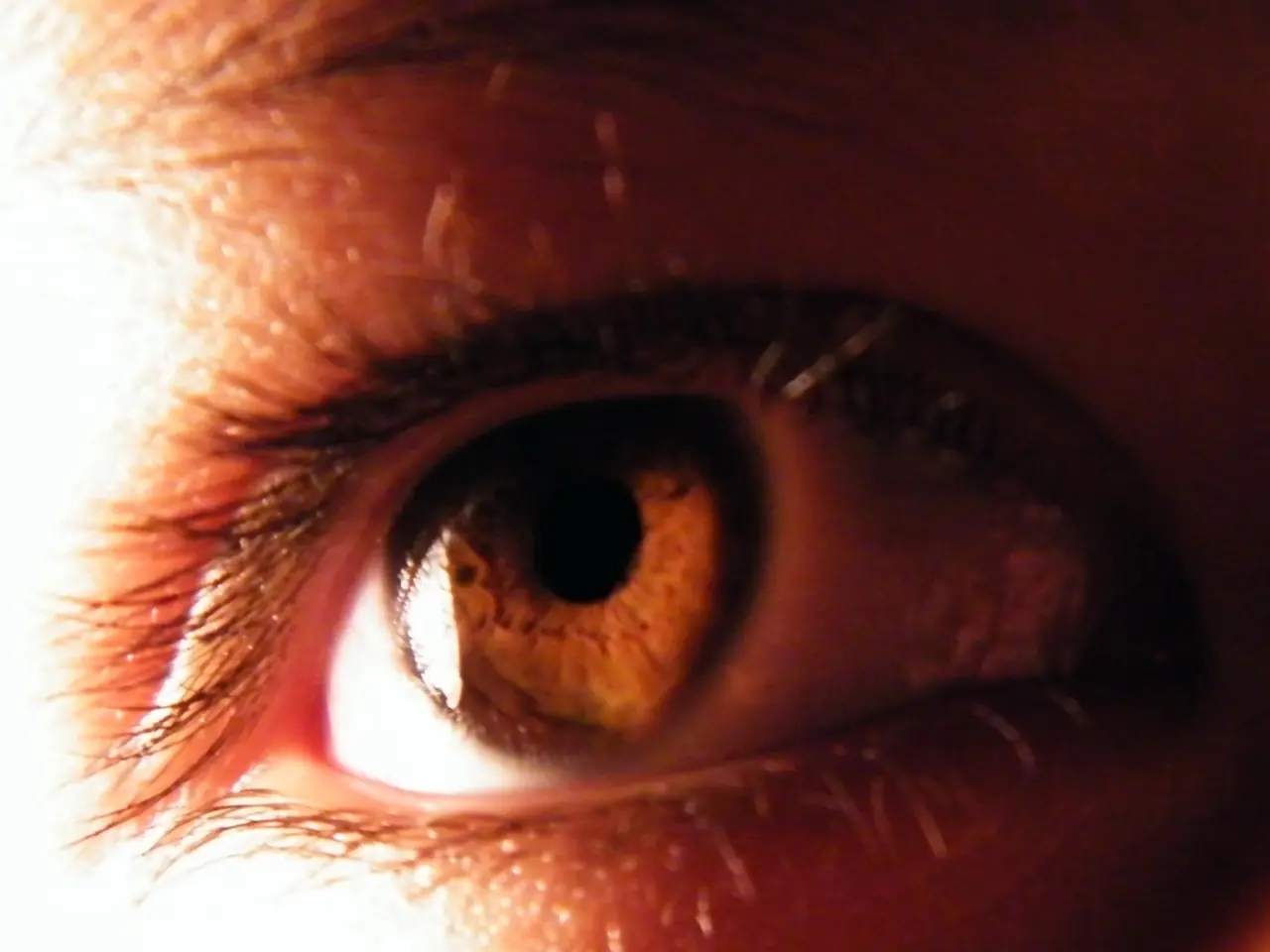Face Skincare Burn: Causes and Solutions Explored
In the world of skincare, it's not uncommon to experience a burning or tingling sensation on the face after applying a new product. This article aims to help you understand the causes and solutions to this discomfort.
Firstly, it's crucial to keep your skin hydrated with a gentle, fragrance-free moisturizer. However, skincare products can sometimes cause these sensations due to harsh ingredients or overuse. Harsh ingredients like alcohol can strip the skin of its natural oils, leading to dryness and irritation.
To prevent skin care burns, opt for gentle, non-comedogenic ingredients. Avoid harsh exfoliants and perform a patch test on new products before using them widely. It's also essential to choose products with minimal ingredients and consult with a dermatologist for personalized advice.
Using too many products, especially those containing strong active ingredients, can overwhelm and damage the skin barrier, leading to discomfort. Any recommended products will likely be free from fragrances, alcohol, and other common irritants to avoid further irritation.
If a burning sensation occurs, immediately rinse with cool water, discontinue use of the product, apply a cold compress, use a gentle moisturizer, avoid other irritants, monitor the skin, protect the skin from the sun, and seek medical advice if necessary.
The dermatologist may suggest switching to products with soothing ingredients like ceramides, glycerin, or colloidal oatmeal. They might also recommend avoiding over-exfoliating and limiting the use of exfoliants to prevent weakening the skin barrier.
Certain skincare ingredients, such as alcohol, AHAs, BHAs, retinoids, preservatives, essential oils, Sodium Lauryl Sulfate (SLS), and benzoyl peroxide, can cause irritation and burning, particularly in sensitive skin.
People with sensitive skin are more prone to irritation and burning when using potent or active skincare ingredients. In such cases, it's advisable to start with lower concentrations and gradually increase as your skin builds tolerance. For sensitive skin, look for ingredients like aloe vera, glycerin, ceramides, colloidal oatmeal, and hyaluronic acid that are known for their soothing and hydrating properties.
Allergic reactions to specific ingredients in skincare products can cause a burning sensation as the immune system reacts to the perceived threat. If an allergic reaction is suspected, the dermatologist might conduct a patch test to identify specific allergens causing the burning sensation.
Incorrect pH levels in skincare products can disrupt the skin's natural balance, causing irritation. Therefore, it's essential to choose products that are pH-balanced and suitable for your skin type.
Persistent burning could indicate an underlying skin condition like eczema, rosacea, or contact dermatitis. In such cases, topical medications like prescription-strength corticosteroids or antihistamines may be prescribed for more severe reactions.
Acids such as Alpha Hydroxy Acids (AHAs) and Beta Hydroxy Acids (BHAs) are powerful exfoliating acids that can cause a burning sensation, especially if overused. When using these acids, follow the instructions carefully and consider introducing them slowly into your skincare routine.
In summary, burning after moisturizing or applying skincare is mostly due to sensitive skin reacting to irritating ingredients, barrier disruption, or misuse of actives. Careful product selection, gradual introduction, and proper layering can help prevent these issues. If the burning sensation on the face persists, consulting a dermatologist is recommended.
- To alleviate discomfort when using new skincare products, use a gentle, non-fragrant moisturizer.
- Avoid harsh ingredients like alcohol and excessive use of strong actives to prevent dryness and irritation.
- Opt for gentle, non-comedogenic ingredients for your skincare products to protect your skin.
- Perform a patch test on new products before applying them to your entire face.
- Consult a dermatologist for personalized advice when choosing skincare products.
- To prevent skin care burns, avoid harsh exfoliants and overuse of active ingredients.
- Products with minimal ingredients and suitable for sensitive skin can help reduce the risk of irritation.
- Soothing ingredients like ceramides, glycerin, or colloidal oatmeal can provide relief in case of a burning sensation.
- Avoid ingredients like AHAs, BHAs, retinoids, essential oils, Sodium Lauryl Sulfate (SLS), and benzoyl peroxide, which may cause irritation in sensitive skin.
- Ingredients suitable for sensitive skin, such as aloe vera, glycerin, ceramides, colloidal oatmeal, and hyaluronic acid, have soothing and hydrating properties.
- Allergic reactions to skincare ingredients can result in burning sensations; consult a dermatologist for a patch test in such cases.
- Incorrect pH levels in skincare products can lead to irritation, so choose pH-balanced and skin-appropriate products.
- Persistent burning might signal an underlying skin condition, such as eczema, rosacea, or contact dermatitis, requiring topical medications.14.Acids like Alpha Hydroxy Acids (AHAs) and Beta Hydroxy Acids (BHAs) can cause burning sensations if used improperly or overused.
- Following product selection best practices, such as proper layering, gradual introduction, and adhering to instructions, can help prevent skincare-related burning.




